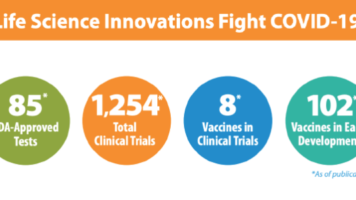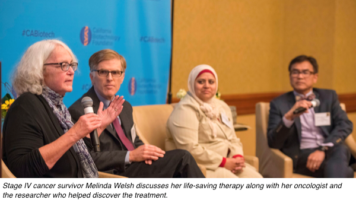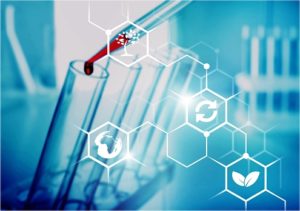Industry News
Life Science Companies on Forefront of Coronavirus Vaccines and Treatments and Legislative Briefing Centers on Opioid Use Disorder Treatments
March 2020
Life Science Companies on Forefront of Coronavirus Vaccines and Treatments
The World Health Organization has declared the coronavirus outbreak a global pandemic. More than 185,000 people from 148 countries have been diagnosed with the virus, including 4,661 in the U.S. and at least 472 in California. While many communities, institutions and individuals are taking great precautions to prevent the spread of the highly contagious virus, it is important to note that dozens of treatments are already in progress to treat, slow transmission and prevent the virus from occurring.
Life science companies and research centers here in California have been champions in past efforts dealing with deadly outbreaks of Ebola, SARS, and MERS and now have a head start on combatting Covid-19. There are dozens of vaccines and treatments in the pipeline to treat the coronavirus and end this outbreak for good. There are also other biotech-based medicines and treatments designed to attack this type of virus directly and boost the body’s immune response. This article provides an overview of the therapies in development and those already on the market to treat this life-threatening disease. Some of them include:
- Roche who recently received “Emergency Use Authorization” to begin mass-producing coronavirus testing kits and also processing the results from the U.S. Food and Drug Administration;
- Inovio Pharmaceuticals who announced that it had produced a pre-clinical vaccine for the COVID-19 coronavirus at its lab in San Diego;
- Gilead which is supporting phase II and III clinical trials in the U.S., China and other countries to rapidly evaluate the safety and efficacy of its investigational compound remdesivir as a potential treatment and has accelerated manufacturing to increase the available supply of remdesivir as rapidly as possible, in anticipation of potential future needs;
- The vaccines unit of Sanofi, which will leverage previous work on a SARS vaccine that may unlock a fast path forward for developing a COVID-19 vaccine, and Sanofi will use its recombinant DNA platform to produce a novel coronavirus vaccine candidate; and
- Pfizer and BioNTech are jointly developing an mRNA-based vaccine candidate that leverages the expertise and resources of both companies.
Legislative Briefing Centers on Opioid Use Disorder Treatments
A legislative briefing with more than 50 legislators and staff was held at the State Capitol on February 26th to discuss treatments and best practices used in treating Opioid Use Disorder (OUD).
Cohosted by Assembly Speaker pro Tem Kevin Mullin, Assemblymember Tasha Boerner Horvath and the California Biotechnology Foundation, the briefing provided an overview of how local experts are using Medically Assisted Treatment (MAT) in their daily operations to support patients with OUD. Some of the highlights provided by the speaker panel included:
- Physicians should inform patients of all treatment options to addiction. Treatment isn’t a one-size-fits-all approach.
- Approach to addiction should be consistent with tackling other diseases and illnesses.
- Medically Assisted Treatment (MAT) is proven to work, especially well when individuals have long-term support and treatment available.
- Overcoming OUD is possible, but it can be a life-long process. It can involve multiple attempts at recovery and requires all available tools to stay sober, including medication, counseling, community support and other interventions.
- Stigma is a huge barrier to a successful recovery. Patients are often judged or considered “still using” with the use of certain MAT’s. This can prevent them from employment, housing, or even custody of their children.
- FDA approved treatments are available to which patients are highly responsive, which can reduce health deterioration that leads to other chronic illnesses. However, not every individual responds to medication in the same way, which is why all FDA-approved treatments should be available.
As many of the speakers noted, this is an issue that will not be solved anytime soon but progress is certainly being made. With so many legislative leaders focusing on this issue, we believe California will continue its outstanding efforts in effectively treating OUD and serving as a national catalyst for change.
If you would like to receive OUD briefing materials or if you have any questions, contact [email protected].
Stay informed on the latest news and trends on the economic and health benefits of this important industry by visiting the new CABiotech.org
For more information about California’s biotechnology and life science industry, contact California Biotechnology Foundation Executive Director Patty Cooper at (916)764-2434 or [email protected].




